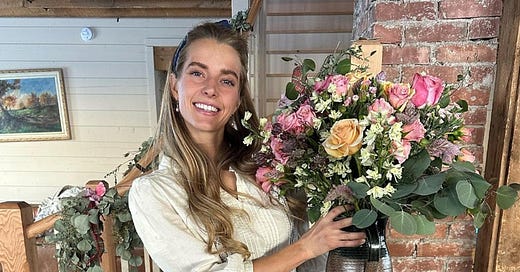This week I was scrolling through Instagram and saw that ELLE UK had reshared an article about tradwives that I had been commissioned to write for its website back in March by posting it on their Instagram feed. I left a heart and cookie emoji and went on with my day.
I enjoyed doing the piece. In it, I wrote about some of the key players and sought to explore the movement’s popularity among women during an era of fragile reproductive rights (obviously Roe vs Wade has been repealed in the US, and in the UK there had been an increase in prosecutions for abortions outside the legal requirements.) I also wanted to potentially introduce some readers to the idea of conspicuous leisure, which is leisure for the sake of displaying social status and wealth, a concept introduced by the economist Thorstein Veblen in 1899.
At no point in my piece did I launch an all-out attack on the tradwives, although I did acknowledge some minor resentment. I wrote: “While I don’t judge anyone for cooking for their families or being a stay-at-home mother (feminism is obviously about choice), tradwives’ performative domesticity and unrealistic portrayals of motherhood can frustrate mums like me.”
When the piece originally went out in March, there wasn’t any push back that I was aware of. I had a few messages telling me they had enjoyed the article and that was that. I sent over my invoice and soon forgot about it.
However, since a Sunday Times interview with Hannah Neeleman aka Ballerina Farm (mother of 8 and queen of the tradwives) went viral at the end of July, the online discussion about this movement, and in particular Neeleman, has once again become extremely loud. As many publications do, ELLE re-upped something relevant from its own back catalogue to be included in the current conversation ie my piece.
This time, however, ELLE shared it on Instagram, which it hadn’t done back in March. And, wow, I was taken aback by the comments, which I was alerted to when someone @ed my own account. Currently there are 88 comments, 95% of which are telling me I am “bitter”, “trash” and imploring me to “do better”. Scanning the remarks, I would hazard a guess that a number of people hadn’t actually read the article, which I thought was pretty balanced and non-judgemental, before they jumped into the comment section, as is the internet’s way.
But I’m not writing this newsletter to weep about a comment section; as a journalist of 15 years this isn’t my first rodeo. What I would like to discuss is the most recurring comeback that was thrown my way in the comments: “Stop tearing other women down”, or its variations, “Why are we finding another way to tear down women?”, “Women putting down other women is not a good look” and “Why are we putting other women down? Shameful”.




